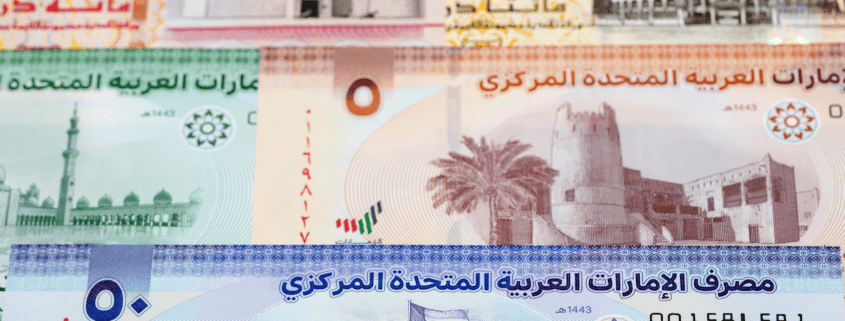Dubai Announces a 15% Tax on Profits for Multinational Companies
In December 2024, the United Arab Emirates (UAE) announced a significant new tax measure: the introduction of a 15% tax on large multinational companies operating within its borders. This change, which has been anticipated for some time, marks a turning point in the country’s tax policy, traditionally known for its low-tax environment, especially the absence of personal income tax. This reform could have significant implications not only for large multinationals but also for the local and international economy, potentially altering the UAE’s reputation as a tax haven.
A Tax Reform in Response to International Standards
Starting January 1, 2025, the UAE will implement a new tax as part of amendments to Federal Decree-Law No. 47 of 2022 regarding business taxation. This includes the introduction of a Domestic Minimum Top-up Tax (DMTT), which will apply to fiscal years beginning on that date.
The UAE’s decision is in response to global tax standards, notably those established by the Organisation for Economic Co-operation and Development (OECD), in order to no longer be considered a tax haven. Under international pressure, the OECD has recommended a global minimum tax rate of 15% for multinational companies with revenues exceeding a certain threshold. This reform aims to curb tax avoidance practices, particularly in low-tax countries like the UAE, which have often been regarded as tax havens.
The UAE has long attracted international businesses due to its favorable tax policies, such as the absence of corporate taxes for certain companies. However, this may change with the introduction of the new tax. Despite this, the country has chosen to align with international standards while maintaining other fiscal advantages to encourage foreign investment.
Which Companies Will Be Affected by This Profit Tax?
This new 15% tax will apply to multinational companies generating profits exceeding AED 375 million (approximately USD 102 million) annually, starting in January 2025. It will primarily affect large businesses in sectors such as finance, technology, oil and gas, and consumer goods that surpass this revenue threshold.
However, the UAE government has clarified that this tax will not apply to all businesses, but only those engaging in transnational activities with significant global revenues. Small and medium-sized enterprises (SMEs) that do not meet this threshold will be exempt from this new tax.
Impacts on Multinational Companies and Investors in Dubai
The introduction of this tax could lead to several adjustments for large companies operating in the UAE, particularly those with profits exceeding AED 750 million. On one hand, this may reduce the UAE’s attractiveness as a tax destination for certain businesses, especially those seeking to maximize profits through low tax rates. On the other hand, it could also prompt many companies to reconsider their location strategies to adapt to new global tax rules, considering the two pillars of taxation.
Nevertheless, the UAE continues to offer significant tax benefits for certain businesses, such as those located in free zones, which can enjoy tax exemptions for several years. Multinational companies will also need to consider new tax optimization opportunities that local authorities might offer through specific regimes for long-term investments.
For foreign investors, this reform may make the economic environment less attractive, although the increased transparency and alignment with OECD international standards could enhance the UAE’s credibility as a regional and global financial hub.
Why Did the UAE Decide to Introduce This Tax?
The introduction of the 15% tax is part of a broader strategy by the UAE Ministry of Finance to diversify its sources of revenue. Traditionally, the UAE’s economy has been heavily reliant on oil and gas, but with declining oil prices and the need for a more sustainable economy, the authorities have begun to diversify their revenue streams. This tax measure also allows the country to comply with international rules, strengthening its position on the global stage and reducing its image as a tax haven.
The government hopes this reform will also encourage more foreign investment by offering greater tax transparency. It could attract companies that are keen to comply with global tax standards while maintaining a business-friendly environment.
A Turning Point for the UAE’s Tax System
The introduction of the 15% tax on large multinational companies starting in January marks a turning point in the UAE’s tax history. While this reform may reshape the country’s economic and fiscal landscape, it also presents new opportunities for businesses seeking to comply with global tax norms. The UAE, which has long been a tax haven for companies, will continue to attract investors due to its dynamic economic environment and numerous free zones, despite the new tax.
However, large companies will now need to adjust their strategies to accommodate this change. Overall, this reform could strengthen the UAE’s position as a key player in the global economy while addressing international tax challenges, particularly those related to the two pillars of taxation.
This change is an important step in the evolution of the UAE’s tax system and could serve as a model for other nations looking to implement more transparent tax regimes in line with international standards. If you would like to know whether this new tax applies to you, please contact us at the following address: support@merritt.group.



